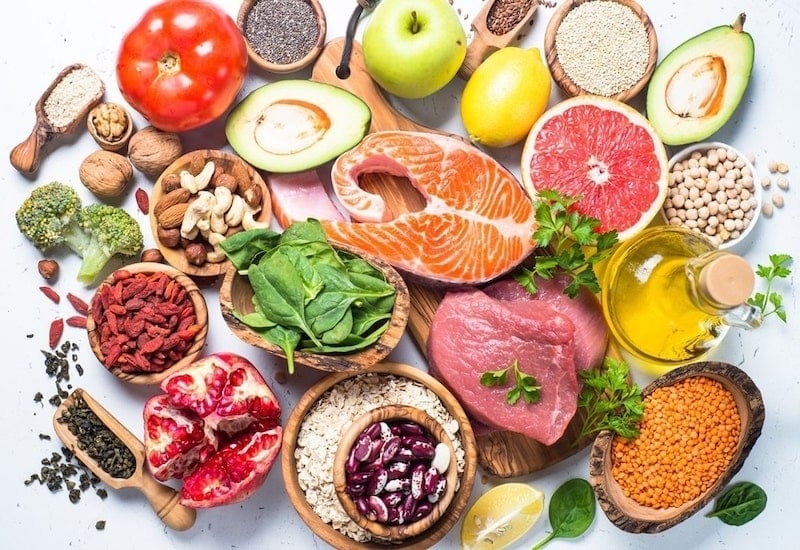Diet to help 'clean' bad blood fat
Choosing the right foods can help control and reduce bad fat in the blood, thereby limiting the risk of heart disease and stroke.
According to Dr. Nguyen Tien Dung, Deputy Director of the Stroke Center, Bach Mai Hospital, saturated fat is one of the causes of increased LDL cholesterol (also known as bad fat) in the blood. When LDL levels are high, the risk of cardiovascular disease and stroke also increases significantly.
Saturated fats are solid at room temperature and are found in beef, lamb, pork, poultry (especially with the skin), animal fats, and whole milk products. Saturated fats can cause health problems by raising blood cholesterol levels.
According to recommendations, calories from saturated fat should account for no more than 5-6% of total daily calories. If a person needs about 2,000 calories/day, saturated fat intake should not exceed 13g, equivalent to 120 calories.

Unsaturated fats help reduce bad cholesterol and triglycerides in the blood, while providing essential nutrients. Therefore, choosing foods rich in good fats is one of the important keys to maintaining heart health.
A healthy diet includes balancing calorie intake and expenditure, choosing nutritious foods such as whole grains, lean protein, plants, and a variety of fruits and vegetables. In addition, it is necessary to limit salt, sugar, animal fat, processed foods and alcohol.
Foods that help reduce bad fat in the blood
Eat lots of fish:You should consume at least 200-300g of non-fried fish per week, especially fish rich in omega-3 such as salmon, mackerel, sardines, herring, tuna. Omega-3 helps reduce inflammation and improve cholesterol levels.
Eat nuts:A small handful of unsalted nuts a day provides good fats, protein, and fiber. Heart-healthy nuts include almonds, walnuts, cashews, sunflower seeds, and pumpkin seeds.
Using butter:Avocados are a great source of healthy monounsaturated fats, along with important fiber, vitamins, and minerals. They can be eaten raw or cooked.
Choosing healthy cooking oils:Use oils lower in saturated fats such as olive oil, canola oil, avocado oil, soybean oil or sunflower oil instead of animal fats and tropical oils such as coconut oil and palm oil.
Replace dairy products:Choose low-fat or fat-free dairy products over whole milk. For meat and poultry, choose lean cuts, remove the skin, and limit frying.
Dr. Dung emphasized that adopting a healthy diet not only helps reduce bad fat in the blood but also brings long-term benefits to cardiovascular and overall health.


